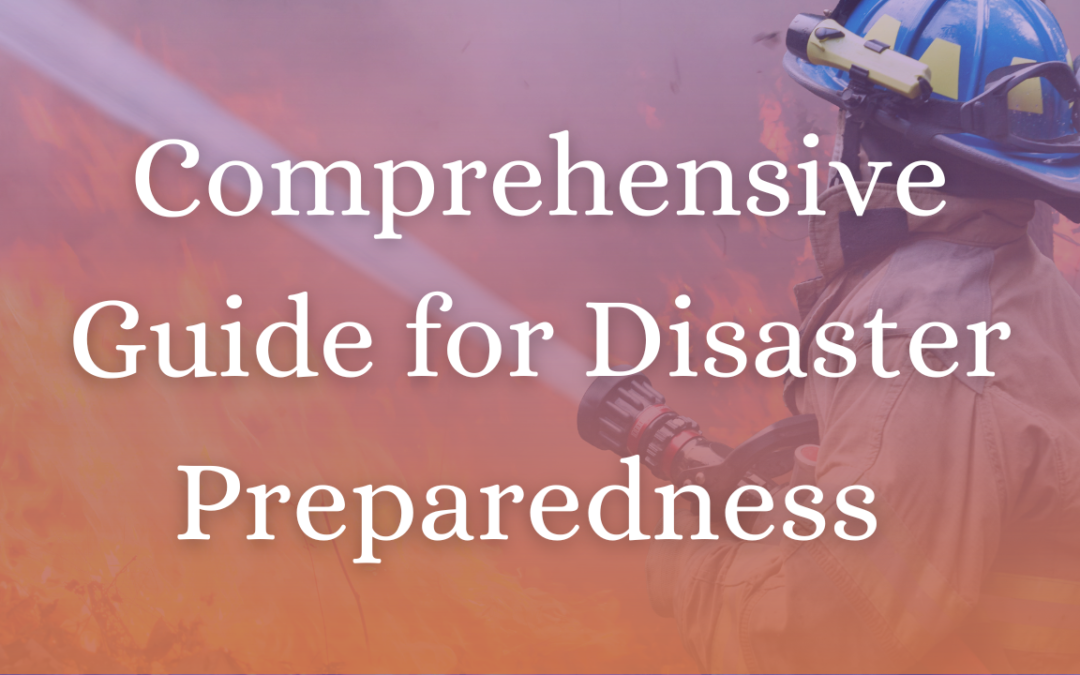Today, I want to recognize the need to plan for natural disasters to protect your important documentation. Staying prepared is the key to ensuring the safety and security of your personal and financial information. The Internal Revenue Service wants to remind you of the importance of safeguarding vital tax and financial documents as part of a comprehensive emergency preparedness plan.
In the year 2023
The Federal Emergency Management Agency (FEMA) has declared disasters for various calamities, from mudslides and landslides to severe storms and tornadoes, underscoring the unpredictable nature of disasters and their far-reaching consequences. These events can have an immediate and lasting impact on individuals, organizations, and businesses. Therefore, it is imperative to understand that disaster preparedness is not a one-time affair but a year-round commitment.
Firstly
It’s essential to keep key documents safe. Original documents, including tax returns, Social Security cards, birth certificates, and property deeds, should be securely placed inside a waterproof container and stored in a safe space. In addition to this, you are advised to create copies of these critical documents and store them in a secondary location, such as a safe deposit box or with a trusted individual living in a different area. Furthermore, scanning these documents and saving them on a flash drive ensures easy portability and quick access in case of an emergency.
Another vital step
Create a comprehensive record of valuables and equipment. This includes documenting all your property, especially high-value items. Maintaining a simple list accompanied by current photographs or videos can significantly aid in insurance claims or potential tax benefits after a disaster. The IRS also provides valuable resources such as disaster loss workbooks in Publication 584, which can help individuals and businesses compile lists of their belongings or business equipment.
Additionally
understanding how to reconstruct or replace important records after a disaster is crucial for tax purposes, claiming federal assistance, or insurance reimbursement. The more accurately the loss is estimated, the more financial aid may become available. If you have lost some or all your records during a disaster, you can find guidance on the IRS’s Reconstructing Records webpage as an essential first step.
The IRS is committed to providing tax relief after a disaster. When FEMA issues a major disaster or an emergency measures declaration, the IRS may postpone certain tax filing and payment deadlines for taxpayers residing or conducting business in affected counties. This tax relief can provide much-needed breathing room during challenging times. For those in affected areas, there’s no need to initiate the request for this relief – the IRS automatically identifies and applies it to eligible taxpayers. For inquiries related to tax matters during disasters, the IRS offers a specialized helpline at 866-562-5227, staffed by specialists trained to address disaster-related issues.
If you don’t reside or conduct business in a covered disaster area but still suffer from the impact of a disaster, calling 866-562-5227 is essential. This call will help assess eligibility for disaster tax relief and explore available options.
In conclusion
The IRS is dedicated to assisting you in your time of need. Staying prepared and safeguarding your financial and tax information is the first step toward mitigating the effects of disasters. I hope you take these recommendations to heart and ensure that you, your family, and your business remain secure in the face of unpredictable calamities.
